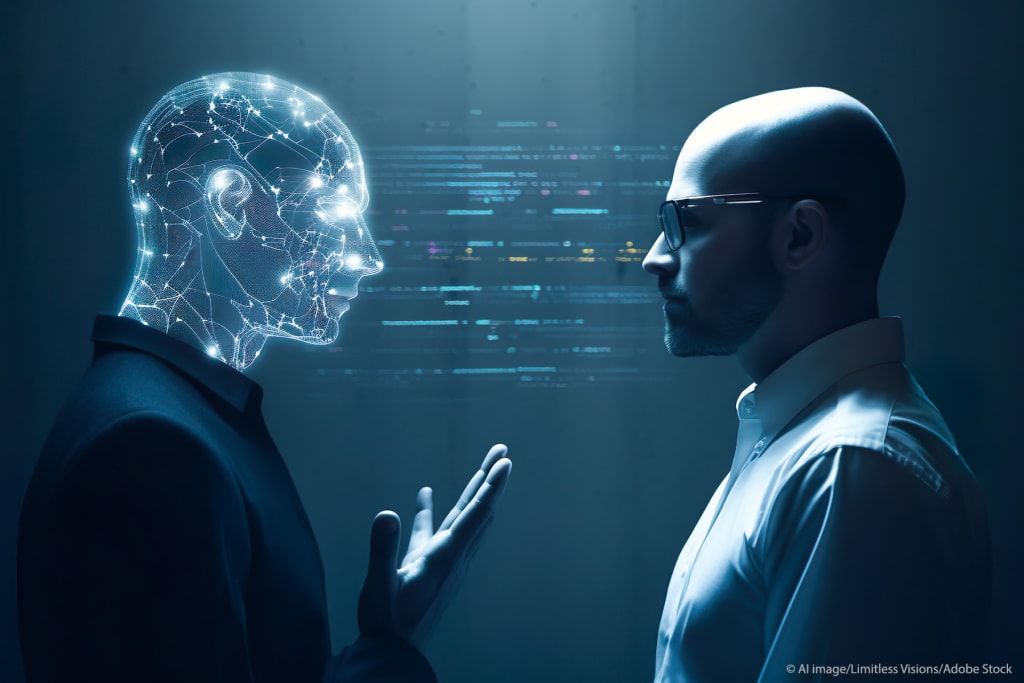Embracing Change
The Evolution of Artificial Intelligence in Our Lives

In recent years, technology has witnessed exponential growth, revolutionizing various aspects of our lives. One of the most prominent advancements that have captured our imagination is artificial intelligence (AI). From virtual assistants to self-driving cars, AI has permeated various industries and transformed the way we interact with technology. In this article, we will explore the evolution of AI and how it has become an integral part of our daily lives.
The Birth of AI
The concept of AI was first introduced in the mid-20th century, with early pioneers like Alan Turing laying the theoretical groundwork for intelligent machines. However, it wasn't until the 21st century that AI truly began to take shape. With the proliferation of data and computational power, AI researchers and developers were able to make significant strides in creating intelligent algorithms that could learn from vast amounts of information.
Personal AI Assistants
One of the earliest AI applications that gained widespread popularity was personal AI assistants like Siri, Alexa, and Google Assistant. These virtual companions could answer questions, perform tasks, and even engage in casual conversations. They offered us a glimpse into the potential of AI to simplify our lives and augment our productivity.
As time progressed, these personal assistants became more adept at understanding natural language, providing personalized recommendations, and integrating with other smart devices in our homes. Today, they can manage our schedules, control our smart homes, and even help us with language translation, making them an indispensable part of our daily routines.
AI in Healthcare
The impact of AI extends beyond our personal devices and into the healthcare industry. AI-driven applications have shown great promise in diagnosing diseases, analyzing medical images, and predicting patient outcomes. Machine learning algorithms can sift through vast amounts of medical data to detect patterns and trends that may elude human doctors.
Additionally, AI-powered robots are assisting surgeons in performing complex procedures with greater precision and efficiency. This integration of AI in healthcare not only enhances diagnostic accuracy but also helps in early disease detection, ultimately saving lives and improving the overall quality of patient care.
AI in Transportation
One of the most exciting developments in recent years has been the emergence of self-driving vehicles. AI plays a pivotal role in enabling these autonomous cars to navigate safely through traffic, respond to road conditions, and make split-second decisions to avoid accidents. Self-driving technology holds the potential to revolutionize transportation, reducing accidents and traffic congestion, while also providing greater accessibility to individuals with mobility challenges.
AI and the Future of Work
As AI continues to progress, it has raised concerns about the future of work and job displacement. While some jobs may indeed become automated, AI also has the potential to create new opportunities and enhance job roles. By automating repetitive and mundane tasks, AI can free up human resources to focus on more creative and strategic endeavors. To ensure a smooth transition, it is essential for businesses and governments to invest in retraining and upskilling the workforce for the jobs of the future.
Ethical Considerations
While the benefits of AI are vast, it is crucial to address the ethical challenges that come with its implementation. As AI algorithms are trained on human-generated data, they can inherit biases present in that data. This can lead to discriminatory outcomes, exacerbating existing societal inequalities. To build a fair and equitable AI-powered world, developers must prioritize ethics and inclusivity in their AI systems, ensuring transparency, accountability, and fairness.
Conclusion
Artificial intelligence has come a long way since its inception, and its integration into our lives continues to evolve rapidly. From personal assistants to healthcare and transportation, AI is reshaping industries and transforming the way we live, work, and interact with technology. While the future holds exciting possibilities, it is vital to approach AI development with a responsible and ethical mindset, ensuring that the benefits of this technology are shared equitably among all members of society. Embracing AI's potential while addressing its challenges will pave the way for a more prosperous and promising future.
About the Creator
Enjoyed the story? Support the Creator.
Subscribe for free to receive all their stories in your feed. You could also pledge your support or give them a one-off tip, letting them know you appreciate their work.





Comments (1)
Thank tou for the Message